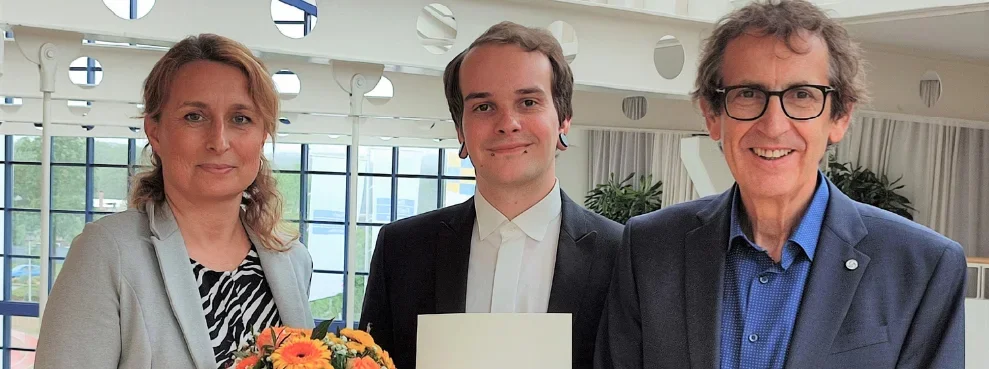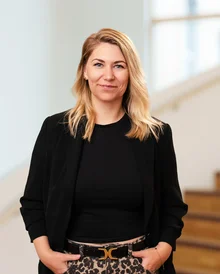More diversity in psychology and psychotherapy
Witten/Herdecke University appoints Dr Jan Schürmann-Vengels to the Junior Professorship of Specific Fields of Activity in Clinical Psychology.

More than 40 per cent of participants in an ongoing longitudinal study by Junior Professor Dr Jan Schürmann-Vengels state that they have had bad experiences with the critical attitude of professionals, especially doctors and therapists. Around 1,800 queer people were surveyed. "A person's sexual orientation and gender identity are rarely asked about. As a result, the needs of LGBTQ+ people are not given enough consideration in therapies and they are repeatedly faced with a critical attitude. This is unacceptable given that they make up around nine per cent of the total European population," says Schürmann-Vengels. In order to address this blind spot in psychology and psychotherapy, Witten/Herdecke University (UW/H) has appointed him to the Junior Professorship of Specific Fields of Activity in Clinical Psychology. The study entitled "Queer Mental Health" will run until mid-2025.
For Schürmann-Vengels, it is a major problem in psychological research that the majority of studies are conducted with only twelve per cent of the population: "You always need test subjects for studies in psychology and these are often young white people from the western world," he says, citing a study from 2010.
Schürmann-Vengels sees changing this as a central task of his research: "Involving underrepresented people in research has many advantages. Among other things, it makes it possible to check whether research results apply to all people and where differences can be found. In clinical psychology, it is clear that people from different cultural backgrounds, with intellectual disabilities or LGBTQ+ people can also develop mental health problems and require therapy." Their special needs have rarely been taken into account so far, although studies have shown that this can lead to better therapy results. More diversity is therefore needed in psychological and psychotherapeutic research and practice.
Taking the special needs of patients seriously
The current study by Schürmann-Vengels provides evidence of differences between different people, including within the LGBTQ+ community: while the mental health of lesbian and gay people is now close to the control group, there are drastic problems for people who identify as asexual, trans* and/or non-binary - they suffer from symptoms and stress around 2.5 times more frequently than the norm group. "Research to date only allows us to make initial assumptions about the stress experienced by these people, but there is often more or less open discrimination in the healthcare system as well as in administrative structures," says Schürmann-Vengels, describing the problems.
He sees his task as building affirmative structures in treatments by training doctors and therapists to recognise the special needs of their LGBTQ+ patients, taking them seriously and adapting the therapy accordingly. "We see time and again that people who want to start transitioning or are in the process of transitioning in particular do not find any prescribed therapeutic support. Anyone with mental health problems currently waits around five months for psychotherapy, but trans* people have an even harder time."
Building a participatory research network
Another idea that Jan Schürmann-Vengels is bringing to Witten/Herdecke University is to involve experts with experience in research and to conduct research with them (rather than about them). Specifically, an open group of queer people should enter into dialogue with researchers. This can be about jointly developing research ideas and study designs, but also about transporting the results to the community more quickly.
Activating resources
The last point for Jan Schürmann-Vengels: "We tend to investigate people's illnesses and try to reduce mental disorders. It would also be a good idea to recognise, develop and expand the strengths and skills of our patients." Under the technical term "resource activation", individual resources such as creative talent, social connectedness or reliability (just a few examples of resources) are to be discovered and researched; precisely those aspects that could not be utilised with the previous focus on the deficits of patients and study participants.
Photos for download

Witten/Herdecke University appoints Dr Jan Schürmann-Vengels to the Junior Professorship for Specific Fields of Activity in Clinical Psychology. (Photo: UW/H)
Contact person

Svenja Malessa
Press Officer
Administration | Communication & Marketing
Alfred-Herrhausen-Straße 48
58455 Witten
Room number: 2.F05